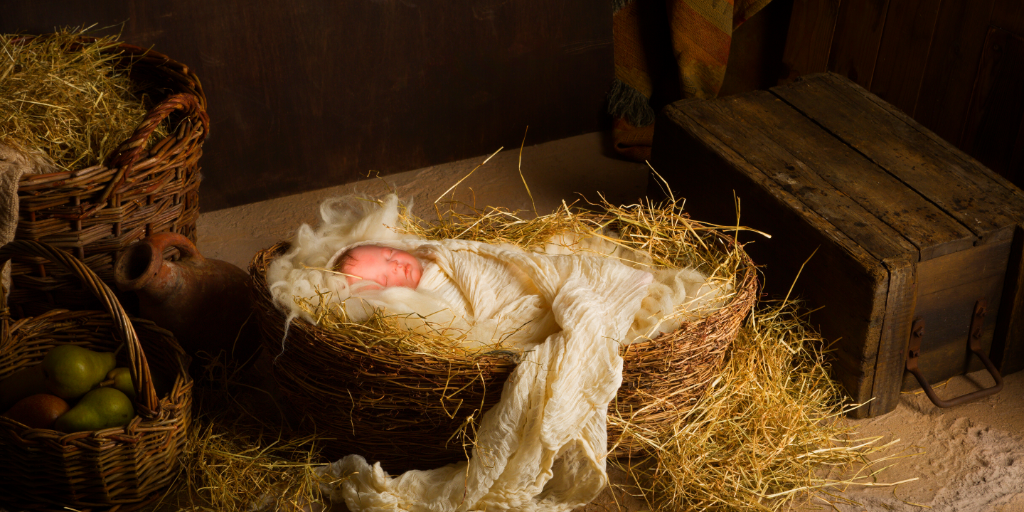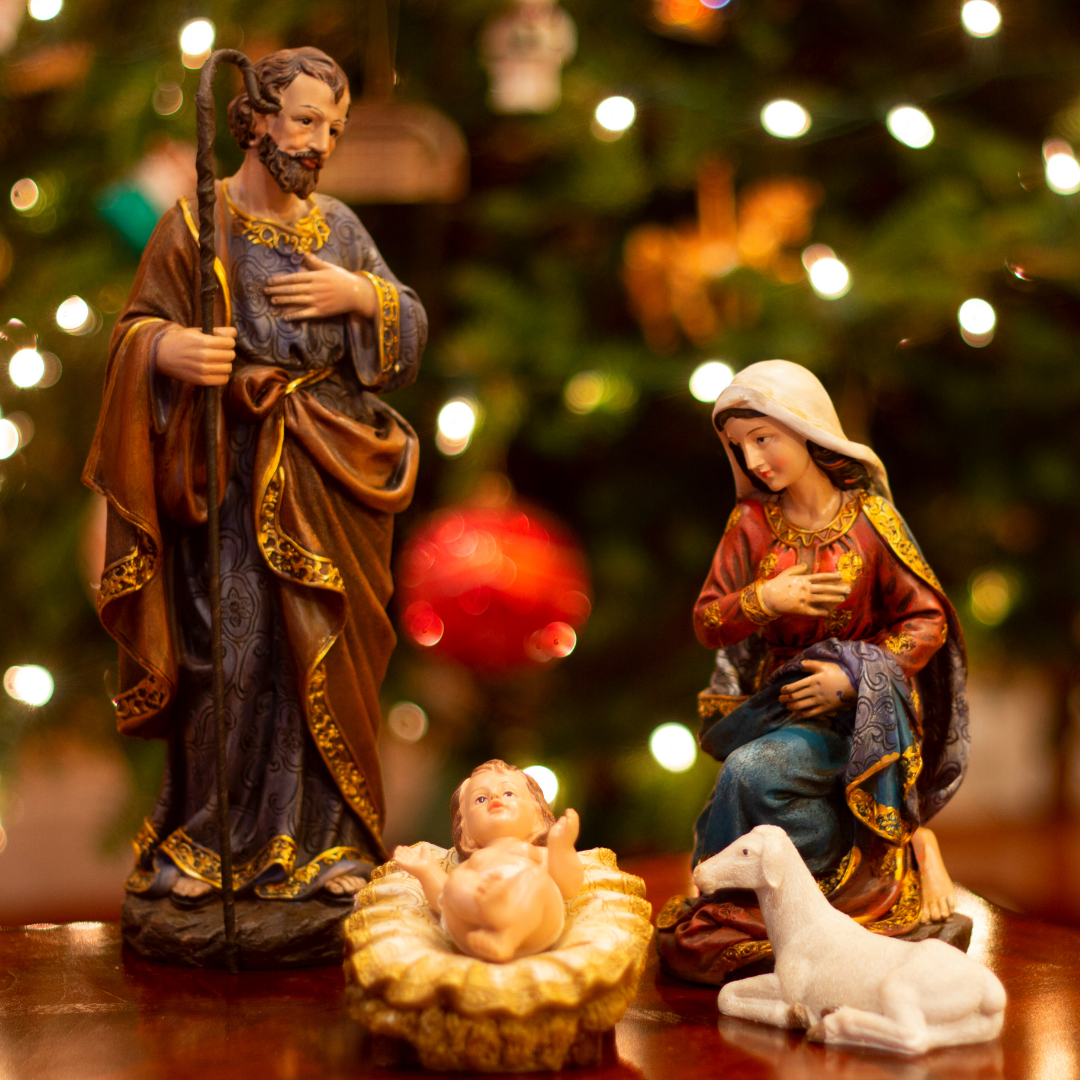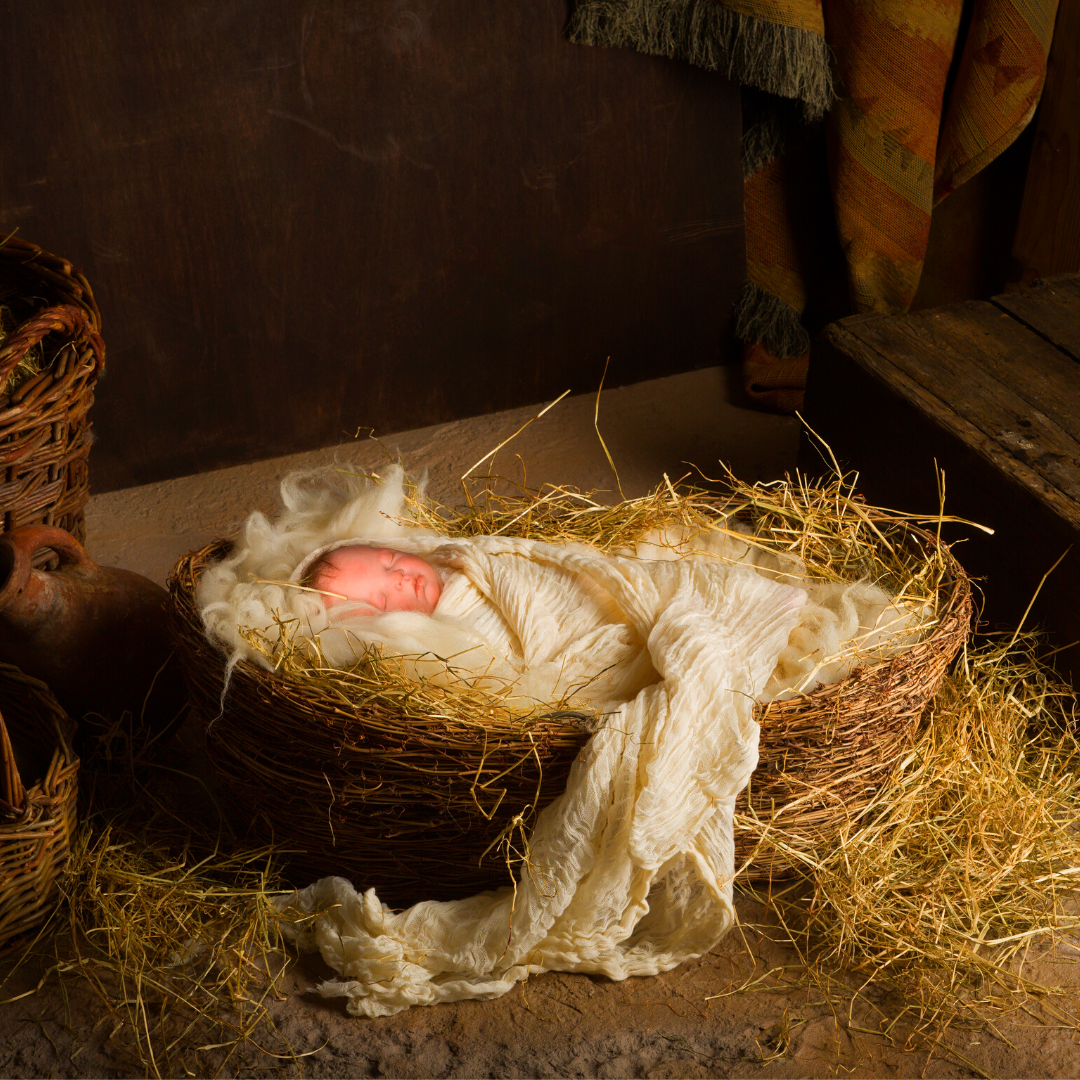
As she tends to her own infant, Lindsey Mitzel ponders what it means for her that Christ came into the world as a baby.
One of the Advent traditions we’ve had in my family for the past few years is to fill a little basket with straw for Jesus’ manger when we make a sacrifice. It’s a helpful visual for my really young kids about how they can noticeably make a difference when they are generous. We tell them that their sacrifices will make Jesus so warm and cozy when He is born on Christmas. Late Christmas Eve I will quietly place our manager at one of my children’s bedsides. They will wake on Christmas to discover not only the manager, but Jesus (aka the most appropriate baby doll I can find) lying cozily amidst all their selfless gifts collected from the past four weeks.
Naturally, everyone wants to wake to find the baby Christ nestled next to them. Kids inherently get the specialness—the gift of this time of year. For my part, I wonder, do I really understand? I appreciate the need to be emptied so that I may be filled with more of Jesus. I recognize the darkness in my life all too well and my need for the light of Christ. But I think if I’m really honest with myself, it’s hard to welcome the Jesus babe this year, when I want the Messiah to maybe look more like a king or a solider, swooping in to save me and all mankind. What does Christ’s coming specifically as a baby mean for me?
I currently have a three-month-old, and every time I’ve had an infant during Advent, I marvel at the idea of giving birth outside. I can’t imagine what Mary went through—likely contracting while Joseph and she sought out a shelter for the birth of God, being rather exposed to all the elements during delivery, the smells, lack of feminine support, having to learn to care for an infant entirely alone apart from Joseph’s presence, keeping Jesus safe, warm, trying to nurse him for the first time. Jesus’ birth was really messy.

Obviously, God had a vested interest in Jesus surviving those early hours and days, however, we only know the story in hindsight. I wonder what Mary’s experience of Jesus’ birth was like. What concerned her? How did she pray as she bore God’s Son? Newborns are so delicate, defenseless, and speaking as a former NICU nurse, so much can go wrong, especially in those early hours and days. Mary didn’t know something wouldn’t go wrong. She must have known all too well that so much could happen, yet she trusted that God was going to take care of the details.
There’s a lot of chaos around me this Advent, and I know I’m not the only one. There are so many ways we can try to deal with chaos, including trying to control it on one end of the spectrum, to giving up or trying to numb ourselves to it on the other end. It reminds me of a story about the Missionaries of Charity and God’s will—if something turned out differently than how it was planned, or if something expected didn’t happen, their response was, “God must not have wanted it for today. We’ll try again tomorrow.”
One of the earliest things I notice my babies learn is to be patient when I’m getting ready to feed them. Initially, they cry until they are fed, and after only a few months they learn the signs that they will be fed and wait a little longer before they cry. My baby knows that if she cries, I will pick her up, and when I pick her up, she calms down. As defenseless as she is, she is calmed by my voice, my smell, and by being held.
The temptation is to become defensive, not defenseless. The more defenseless we become, the more we need God and others. The temptation is to be self-reliant, and we feel we will be more secure when we have control. Yet the more we depend upon others and become vulnerable, the more we allow God and others to provide. I think sometimes we might not want to bother others or ask too much, but a vulnerable heart is attractive because of its need for others, not the opposite.
So how does Jesus coming to me as a baby impact me this Christmas? Jesus chooses to need us in His vulnerability and defenselessness. He actually needs us in His humanity, just as Mary shows us she needs to physically care for Him in order for Him to survive. At the same time, in His Divinity, He also teaches us how to perfectly need Him and rely upon Him. He will provide. He will carry us. He will feed us. And just as a baby doesn’t always know its mother is nearby when it can’t see her, He is always near to us and ready to care for us if we would cry out to Him.

Copyright 2022 Lindsey Mitzel
Images: Canva
About the Author

Lindsey Mitzel
Lindsey Mitzel is a nurse practitioner and mom to six littles. When not homeschooling or driving her kids to various places, she enjoys gardening, hiking, and running. Lindsey appreciates dry humor, a good pun, and coffee. You can read more about her at Eight and a Half Months. Lindsey also occasionally writes for Be Love Revolution's Tiny Thoughts blog.


.png?width=1806&height=731&name=CatholicMom_hcfm_logo1_pos_871c_2728c%20(002).png)
Comments